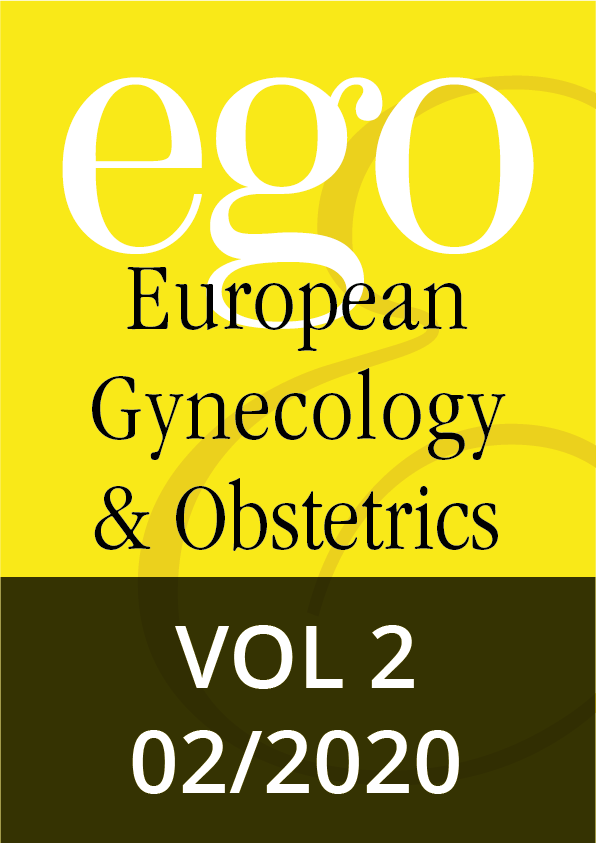Editorial, 03-04 | DOI: 10.53260/EGO.202011
Editorial, 071–072 | DOI: 10.53260/EGO.202021
Short reviews, 073–076 | DOI: 10.53260/EGO.202022
Short reviews, 077–081 | DOI: 10.53260/EGO.202023
Short reviews, 082–089 | DOI: 10.53260/EGO.202024
Short reviews, 090–093 | DOI: 10.53260/EGO.202025
Case reports, 094–097 | DOI: 10.53260/EGO.202026
Case reports, 098–100 | DOI: 10.53260/EGO.202027
Short reviews, 10-15 | DOI: 10.53260/EGO.202013
Case reports, 101–104 | DOI: 10.53260/EGO.202028
Original articles, 105–110 | DOI: 10.53260/EGO.202029
Original articles, 111–115 | DOI: 10.53260/EGO.2020210
Original articles, 116–122 | DOI: 10.53260/EGO.2020211
Original articles, 123–126 | DOI: 10.53260/EGO.2020212
Original articles, 127–131 | DOI: 10.53260/EGO.2020213
Haploinsufficient FBN1 variants are associated with a higher risk of aortic complications in pregnant women with Marfan syndrome
Abstract
Background and purpose: Haploinsufficient (HI) FBN1 variants have been shown to be associated with a higher risk of aortic events in the Marfan syndrome (MFS) population compared with dominant negative (DN) variants. We sought to determine whether FBN1 genotype is associated with the rate of obstetric/fetal outcomes and aortic complications in prima- and multigravida women.
Methods: This retrospective study analyzed clinical data collected for 52 prima- and multigravidas with MFS who were genotype-positive for DN or HI FBN1 variants.
Results: Overall, 62% of the women developed primary (aortic dissection or aneurysm rupture) or secondary (corrective surgery or aortic dilatation) outcomes. The HI genotype was associated with a 4-fold higher rate of aortic events compared with the DN genotype (P = 0.03). The peripartum period tended to show a higher rate of aortic events in the HI group (0 DN vs 4 HI subjects, P = 0.14), in which 2 cases were fatal. MFS diagnosis was made after pregnancy in 60% of the subjects. There was no difference in obstetric/fetal outcomes between the DN and HI groups.
Conclusions: Pregnant women with HI variants in FBN1 had an overall higher rate of aortic events compared with those with DN variants. Our data suggest that women with suspected MFS may benefit from confirmatory molecular genetic testing prior to pregnancy.
Keywords: aortic aneurysm., aortic dissection, FBN1, Marfan syndrome, pregnancy
Citation: Polonis K.,Conboy E.,E. Kotzer K.,L. Kluge M.,A. Lagerstedt S.,M. Baudhuin L., Haploinsufficient FBN1 variants are associated with a higher risk of aortic complications in pregnant women with Marfan syndrome, EGO European Gynecology and Obstetrics (2020); 2020/02:116–122 doi: 10.53260/EGO.2020211
Published: April 1, 2020
ISSUE 2020/02

Editorial, 03-04 | DOI: 10.53260/EGO.202011
Editorial, 071–072 | DOI: 10.53260/EGO.202021
Short reviews, 073–076 | DOI: 10.53260/EGO.202022
Short reviews, 077–081 | DOI: 10.53260/EGO.202023
Short reviews, 082–089 | DOI: 10.53260/EGO.202024
Short reviews, 090–093 | DOI: 10.53260/EGO.202025
Case reports, 094–097 | DOI: 10.53260/EGO.202026
Case reports, 098–100 | DOI: 10.53260/EGO.202027
Short reviews, 10-15 | DOI: 10.53260/EGO.202013
Case reports, 101–104 | DOI: 10.53260/EGO.202028
Original articles, 105–110 | DOI: 10.53260/EGO.202029
Original articles, 111–115 | DOI: 10.53260/EGO.2020210
Original articles, 116–122 | DOI: 10.53260/EGO.2020211
Original articles, 123–126 | DOI: 10.53260/EGO.2020212
Original articles, 127–131 | DOI: 10.53260/EGO.2020213
